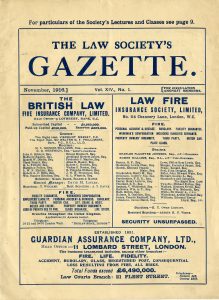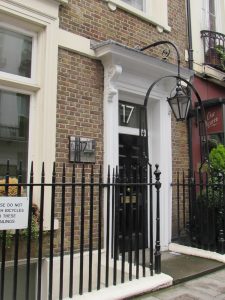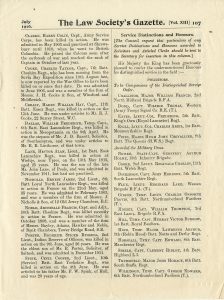There are piles of wartime letters in the Peirs collection and they are each remarkably well preserved. You can touch the paper without it crumbling and the ink has not faded so significantly as to render Jack’s words illegible. On one or two letters, you can still see the smudges of dirt that Jack left while he was scribbling in the trenches, trying to get a few sentences off to his family in between tasks. His handwriting, too, is full of clues; it became angular and uneven when he was rushed and it became cramped, but tidy, when he was at ease. The paper, ink, and graphite with which Jack wrote are a part of his story, too, just as much as his own words are. They help construct a brighter, clearer, and more colorful image of the man and the tumultuous world in which he lived.
These letters, however incredible they are, do not reveal everything about Jack’s life. They are limited to the war years and, with a few exceptions, are all from Jack’s perspective. We have a wonderfully distinct portrait of the experience of a British officer during the Great War, but we only have hints about his family’s wartime life. We do not know in any great detail, either, what Jack’s life was like when the war ended or what it was like before it began. We have ideas, certainly, but we do not have anything as revealing as personal correspondence with which to try to reconstruct the man that Jack was outside of his military service.
The fact is, Jack’s pre-war world did not stop turning when he went off to the front. He left behind numerous friends and family members whose lives continued on with relative normalcy, despite the shadow that the war cast. And in the collection, scattered among his numerous letters, are newspaper clippings and telegrams and pamphlets that testify to the world and the life that Jack put on hold while he was at the front. Perhaps some of the most fascinating of these documents are two copies of The Law Society’s Gazette from 1916 in which Jack was mentioned.
The Gazette, which Jack and his father received, since they were members of the Society and practicing solicitors, contains valuable insight about Jack’s pre-war world and how the war affected it. Today, and in another installment coming soon, we’ll be taking a look at this aspect of Jack’s life by investigating the Gazette. For the moment, let’s head out of the trenches and try to reconstruct the world that Jack knew before the war.
Jack began his university education in 1905 when he enrolled in the fall semester at New College, Oxford. There is little information available about Jack’s time as a student, but we do know that he played football while he attended university and that he graduated in June of 1909 with an honors degree in Law. Jack, it seems, was preparing to follow in the footsteps of his father, Hugh Vaughan Peirs, who worked as a solicitor and had his own firm located at 17 Albemarle Street in London. Jack is listed in the 1911 British census as a solicitor’s articled clerk (the solicitor in question being Hugh Vaughan). He was eventually admitted as a solicitor two years later, in 1913, and remained in the family firm. In 1914, however, Jack put his career on hold to go off to war.
Although Jack spent the majority of the next five years on the western front, the community of solicitors that he had left behind did not forget him. Traces of his wartime activities appear in the Gazette, where mentions of his honors occasionally interrupt pages of advertisements and meeting minutes.
At least twice, the honors that he received for his service were reported in the Gazette, which printed a column detailing the “Service Distinctions and Honors” that had been bestowed upon the society’s members while they served. In the July 1916 issue of the Gazette, the society took note of the men whom “His Majesty the King” was “graciously pleased” to recognize for “distinguished service in the field.” Below this formal, stoic introduction followed a list of names and awards. There, Jack’s name appears as one of a few society members who had been made Companions of the Distinguished Service Order (DSO). This was the first of three times that Jack was awarded the DSO throughout the war. The Gazette’s mention of Jack’s honor came just one month after it had been officially granted in June of 1916.
Jack was mentioned a second time in the Gazette’s November 1916 issue, again in the column dedicated to “Service Distinctions and Honors.” This time, it was because he had been “recommended,” along with a number of other solicitors and articled clerks, “by General Sir Douglas Haig in his despatch of the 30th April 1916 for gallant and distinguished conduct in the field.” To be specifically mentioned by Haig in a letter was significant; Jack’s actions on the front stood out enough for the commander of the British Expeditionary Forces to take notice. This kind of recognition often resulted in major, formal military awards. In Jack’s case, it is likely that this mention led directly to one of his DSOs, perhaps even the one he was awarded in June of 1916 that the Gazette remarked upon in July.
What is intriguing about the Gazette’s mention of Jack’s awards is that it is an indication of the way the publication was reacting to the war. The Gazette served a small, well-defined community and it had a specific purpose: to circulate news of business matters throughout Britain’s community of solicitors. It was not a regular newspaper and it had no obligation to react to the events on the western front. That this niche publication developed a special section to share military honors and awards is indicative of how the war invaded every facet of life, even for those far removed from the battlefields. Indeed, the way Jack’s military and professional lives overlap in the Gazette speaks to the immensity of the First World War and its influence over the early twentieth century.



